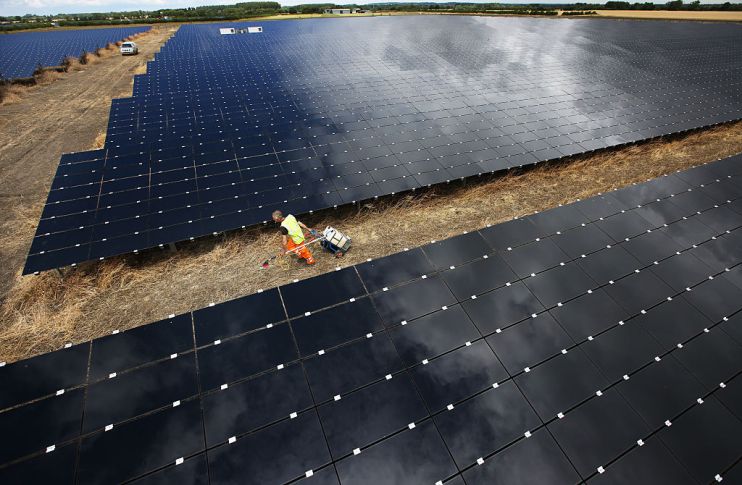Enterprise Investment Scheme funds need to be green to cater to younger investors

This year is exciting for many reasons, and not just because it is not 2020. 2021 marks the first year of a decade that will need to deliver significant social and environmental changes if the UN’s 2030 Sustainable Development Goals are to be achieved. People are starting to think meaningfully about returns on investment in terms of both financial gain, as well as environmental and social gain.
We can see this clearly on an institutional level: the Government has announced it will launch its first green savings bonds and a new green infrastructure bank, corporates are falling over themselves to pledge their green intentions, retailers are trying to make their supply chains carbon neutral, or at least, less emissions heavy.
But we can also see this on a personal, individual level: people are making different decisions about where their pensions are invested, where their food comes from, and who made their clothes. Polling from the Government’s Investing in a Better World report showed more than 70 per cent of people want their own investments to achieve good “for people and the planet”.
The nature of the investor is also changing: 56 per cent of people say they are interested in making a sustainable investment now or in the future, this rises to 71 per cent of millennials.
This shift in public attitude is impacting the focus of the investment sector and the opportunities available to individual retail investors. Investment mechanisms designed to harness the impact of motivated retail investors are being channelled to grow businesses addressing significant global issues.
One such example is the Enterprise Investment Scheme, set up in the UK in 1994, EIS encourages angel investors to make investments into young businesses. Investors can claim up to 30 per cent income tax relief on their investments, as well as capital gains relief and some loss relief if the business fails.
Naturally, this has always made an attractive proposition for private market investments. Though investing in a private, early stage startup is one of the riskier investments that one can make, it becomes a lot more appealing if the government rewards you for taking on the risk and potentially cushions the fall if an investment doesn’t work out. This is why EIS has now raised £22 billion since 1994, funding over 31,000 companies.
For the last few years, just over 30,000 investors have claimed EIS tax relief each year. Data shows that in 2018-19, 83 per cent of investors claiming EIS tax relief had invested £50,000 or less.
Given the scale of funds invested, the ramifications of more of these investments targeting purpose driven businesses are enormous for delivering SDG success. The social benefits of EIS funds are not a new concept because of their role in creating jobs and stimulating the growth of new businesses, but new, SDG aligned funds like the Conduit EIS Impact Fund go several steps further in channelling the energy of mission-driven start-ups to solve the world’s greatest social and environmental challenges.
Until now, private impact investments – those that look to make a positive financial and social or environmental return – have largely been reserved for the largest institutional investors like pension funds and foundations. Smaller retail investors should be given more access to high impact opportunities in the sectors which require private capital the most: climate, education, health & wellbeing, and financial inclusion & economic development, without a multi-million pound minimum investment.
We must take the lessons we have learnt over the last year and integrate them into how we invest our money. Smaller, greener and fairer are the watchwords of the future.